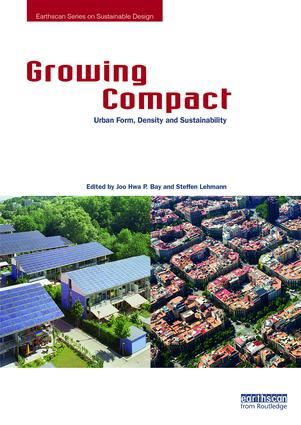Joo Hwa Philip Bay has practised architecture and urban design since the mid-1980s, has been a company director of a large practice, and has designed and completed about half a billion dollars of projects. He was a Council Member of the Singapore Institute of Architects, and has won several design awards. He received his PhD in Technische Universiteit Delft, The Netherlands, researched and taught at the National University of Singapore, and has been an Associate Professor at the University of Western Australia and an Adjunct Associate Professor of the Curtin University Sustainable Policy (CUSP) Institute. One of his design research consultancies was to advise the Singapore JTC Corporation on new urban housing for a 35,000 expatriate population at the ‘new economy’ hub called 'one north'. His published works include Tropical Sustainable Architecture: Social and Environmental Dimensions, and ‘Towards a Fourth Ecology’, in the Journal of Green Building. He founded and chaired the International Network for Tropical Architecture from 2004 to 2009, and has been invited to speak in many international conferences and seminars. He is on the specialist register, LandCorp Western Australia, on editorial boards for two journals, and has been referee and advisor to major conferences, member of jury for design competitions, reviewer of journal papers and examiner of PhD dissertations internationally. Steffen Lehmann is a Professor of Sustainable Architecturein the Faculty of Creative and Cultural Industries at the University of Portsmouth (UK), where he is also Director of the Cluster for Sustainable Cities, a university-wide research group with 36 researchers. Prior to this, he has been a full professor for 14 years at high-ranking universities in Australia, holding senior leadership positions ranging from Director of research centres to Head of School and Head of Discipline. For most of this time, Steffen was a tenured Chair Professor of Sustainable Design at the University of South Australia in Adelaide, where he was also Founding Director of the Centre for Sustainable Design & Behaviour, and the China-Australia Centre for Sustainable Urban Development. From 2008 to 2010, based on the international significance of his research, he was appointed as chair holder of the UNESCO Chair in Sustainable Urban Development for Asia and the Pacific. Prior to becoming a full-time academic, Steffen ran for over ten years his successful architectural practice Steffen Lehmann Architekten Berlin (s_Lab) in Berlin, where he was instrumental in the design of the 'New Berlin'. After studying at the Architectural Association School in London and completing a PhD at the TU Berlin, he worked from 1990 to 1993 with architects James Stirling in London and Arata Isozaki in Tokyo.See alsowww.city-futures.org.uk.












